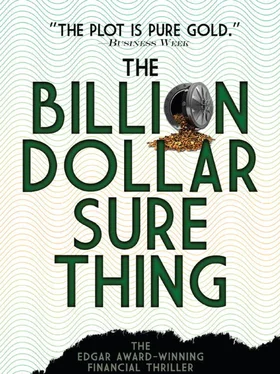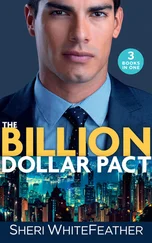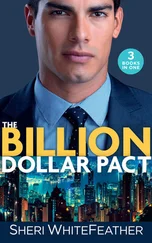The problem had then reduced itself to the supplier. Which country would get this big fat contract? Everybody, of course, got into the act. All ramifications were considered: political, military, financial, technical. But this time, in contrast to earlier deals involving Cuban sugar or Egyptian cotton, the cool logic of the technocrats, who now ruled the country, had prevailed. Reciprocal trade potential, quality, speed, punctuality of delivery, price, and financial terms—these were to be the criteria upon which the decision was to be based—in exactly that descending order. The Americans out of Milwaukee would have won hands down on speed; the Italians from Genoa on financial terms; the British on price; the Japanese on punctuality. But only the Germans got high points in all six areas—first in quality, overwhelmingly first where potential reciprocal trade was concerned since they could probably absorb all the Russian gas and crude that would be offered and pay for it in hard cash, and second in all the rest.
The Soviets recognized that Germany once more had the most efficient industrial machines in the world. The country was just one big modern factory, led by men who attacked markets with the efficiency of Prussian generals, supported by engineers and technicians who were perfectionists and manned by workers who had no equivalent for devotion to duty, quality of work, and identification with their company, their products, and the success of both. He was a Marxian nightmare, this German worker with his Volkswagen, his colour TV, his vacations in Spain.
“I see really only one area that does not seem to be perfectly regulated,” said Melekov finally, breaking the twenty-minute silence which had settled over the room as he studied the financial part of the contract.
The German stiffened. He did not like this—at all. He and his people had now spent almost seven months of hard work, haggling over the most minute details, often with second-rate bureaucrats who would not have been offered any greater responsibility than driving a streetcar if they lived in Düsseldorf. In spite of this, the entire 700-page agreement, not to speak of the thousands of items in the appendices, was already initialled, ready for final signature. Except for these last ten pages.
“What area are you referring to?” was Klausen’s response. The man was obviously having difficulty.
“The mode of payment.”
“But, Herr Melekov, we have discussed this matter at least a dozen times with your people. This, finally, is your draft, not ours.”
“I am not speaking of the terms. Ten years is satisfactory. Nor am I referring to the rate of interest. Eight percent seems correct. Finally, I am not referring either to the takedown conditions or the amortization plan. What has been worked out there is quite acceptable. No, I am referring solely to the currency. We desire that the transaction be made in United States dollars and not in German marks. That’s all.”
Klausen had regained his cool. He did not twitch an eyebrow.
“That’s all?”
“That’s all,” restated Melekov.
“But you surely realize that this is not just a slight change. The entire credit scheme is based upon a most complex set of arrangements between ourselves and a consortium involving the five largest bank groups in our country. Our banks are German banks. Our currency is the mark. Our product is based upon German costs, mark costs. Therefore the entire transaction must done in marks.”
“My dear Herr Klausen, our banks deal in rubles. Our costs are calculated in rubles. Our workers are paid in rubles. But we adapt to the realities of international trade. When we sell you machine tools, and we have sold many to your company, we bill you in dollars and you pay in dollars—not rubles and not marks. When, or should I say if, we sell crude petroleum and natural gas to you after this pipeline is finished, you know as well as I that the terms will be agreed upon in dollars—just as they are on oil transactions everywhere else in the world.”
“And who will give us forward foreign exchange cover? Who will give a guarantee protecting us against currency losses ten years into the future?”
“That, my dear Klausen, is your problem, as you know full well. And it’s hardly the first time you’ve had such a problem. But I’m sure you can solve it. You’re a resourceful man. You know as well as I that you and your bankers in Germany have been deeply involved in dollar financing for many years. Availability of dollar funds should be no problem. Interest rates will likewise be no problem. At the moment long-term rates in dollars and marks are almost exactly the same. We prefer dollars. We do 90 percent of our foreign trade in dollars. We do not desire to make such a major exception.”
Klausen’s thoughts raced. This is it. Either or. Either this Melekov is serious or he has been instructed to sabotage the deal. No use stalling.
“Fine, Herr Melekov. I will give you an answer at noon tomorrow. If my answer is positive, you will agree to proceeding with the final signing of the contracts as scheduled—at five tomorrow afternoon?”
“Yes,” replied Melekov.
“No other problems?”
“None.”
“May I call you tomorrow at the bank? Say, just before noon?”
“Splendid,” agreed Melekov. His assistant, who had been sitting on Melekov’s left during the entire performance was as stunned as Klausen, but his face indicated nothing more than steadily increasing boredom. The fact that he had personally drafted the final version of the financial side of this agreement—in marks—and that both Melekov and the bank’s chairman, Stepanov, had approved it was already being relegated to that particular compartment of his memory banks which he reserved for what he privately termed Kuriosum.
After leaving the Germans, Melekov took the lift to the top floor of the hotel and treated his assistant to a sumptuous lunch. No further reference was made to business. By two o’clock both were back at the Foreign Trade Bank of the Soviet Union. And the first thing Melekov did was knock on the door of the office of his boss, the bank’s chairman—Valentajn Ivanovich Stepanov, Hero at Stalingrad, protégé of Khrushchev. A remnant of the glorious past, and a big pain in the ass. After knocking he moved right in with no further formality.
“Take a seat,” commanded Stepanov, in a voice which was harsh and raspy. “How did it go?”
“Fine. I’m shifting the whole transaction onto a dollar basis.”
“You’re what?”
“I said, quite distinctly I thought, that I’m shifting the entire pipeline purchase onto a dollar basis.”
“Are you crazy?”
“No. Hardly.”
“Who authorized you to do this?”
“My dear Valentajn Ivanovich, I do not require authorization. I am in charge of the foreign exchange operations of this bank.”
“But I am in charge of this bank. And such a decision is my prerogative. My God, the basic national interests of the entire Soviet Union are at stake. Have you gone mad?”
“I believe I’ve already covered the subject of my mental health. As to the rest, I have very carefully discussed this matter with the president of the National Bank. He fully agrees with the new policy.”
“New policy? What new policy?” screamed Stepanov, who by now had risen from behind his desk and gotten very red in the face. “What new policy, I asked?”
“The new dollar policy,” replied his deputy chairman.
Stepanov seemed to sense that something was going on here that could be very very dangerous. He sat down behind his desk once again and started to fiddle with a ball-point pen.
“Melekov, I do wish you would stop talking in riddles.”
“There is no riddle. As you quite well know, if I must repeat it, I am in charge of the foreign exchange operations of this bank. And it is my duty to coordinate all plans and operations in this area with the head of our parent institution, the National Bank of the Soviet Union. After all, they—not we—hold the gold and foreign exchange reserves of this country. They also control the money supply inside the country. Therefore they set the policy. We manage the day-to-day flows of money and credits to and from our country, according to that policy. I think I hardly need to explain this to you.”
Читать дальше












